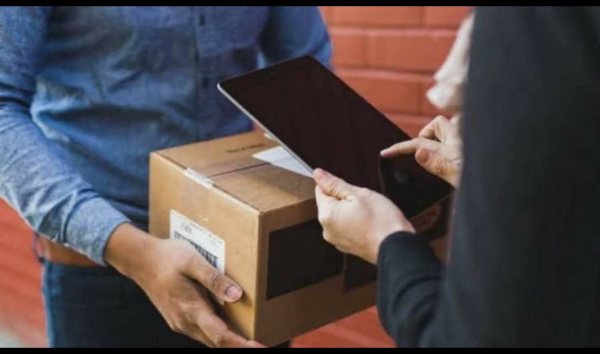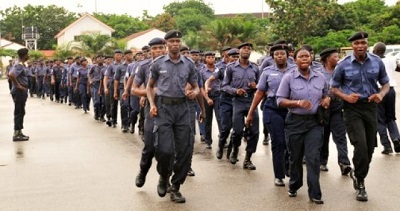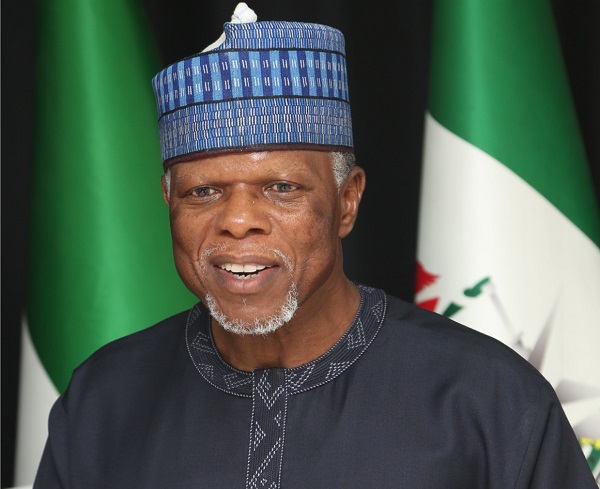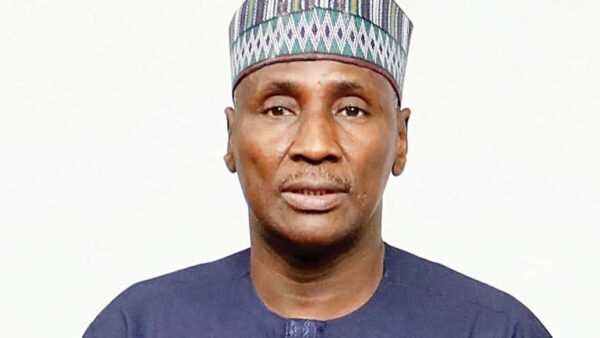How To Be Successful In Mining In Nigeria – Adeyemi
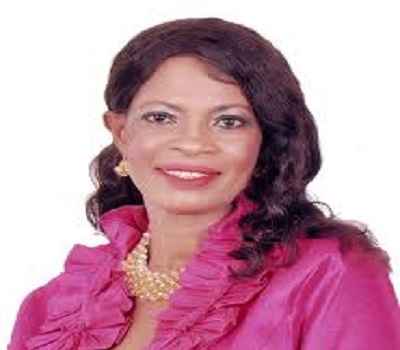
By Oyeniyi Iwakun
Hon. (Mrs). Janet Adeyemi is the President of Women in Mining (WiM), Nigeria. In this interview with MMS Plus, she bares her mind on several issues bothering on mining in Nigeria. She explains the challenges, the place for women in mining and gives advice on the rudiments to successful mining in Nigeria. This interview was done in Lagos on Friday 25th, August 2017. Excerpts:
Can you tell us about Women in Mining?
Women in Mining (WiM) is a non-profit organization registered in Nigeria through the Corporate Affairs Commission (CAC). We look critically at the impact of mining on women in Nigeria and when we say women, we mean the vulnerable ones. The sole objective of the association is to address the gaps found in the oil and gas sector such as building the capacity for women to enable them participate and get engaged in the sector to ensure that environmental degradation created as a result of mining is addressed. We also ensure that host communities are taken care of by looking at well-structured community agreements with the community to ensure that the community itself participates and then to eventually ensure that mining contributes to job creation and Gross Domestic Products (GDP) growth in Nigeria because right now mining contributes about 0.2% to our GDP and 0.3% job creation which should not be so looking at the fact that Nigeria has minerals in virtually all the Local Governments of the country and we see all our minerals in other countries of the world.
We need to ensure that the sector is well organized by ensuring that there is a strong regulatory framework in place, good policies in order to encourage gender mainstreaming that allows people to be, so when you talk about gender people should not think we are talking of women and women alone. Gender entails everybody; everybody should be allowed to do what they need to do. Even in the sector, the Women in Mining (WiM) acts as watchdog. If you have to employ, just like it obtains in other countries all over the world, it should be Nigerians first, it is when you don’t have Nigerians that are capable or that don’t have the capacity to get engaged in something that you have to take in foreigners and those foreigners should be time-bound where you ensure that you have Nigerians that are actually being taught what we call “technical skills transfer” so that people can get occupied, engaged and benefit from the resources of their land. You heard President Trump say today that “America first”, that should be the dream of every president.
What motivated you to going into the mining sector?
It could be destiny. Yesterday, I was just sharing with somebody that I don’t know maybe my course of study could have been medicine or agriculture because even after my HSC with my grade, I think I could have gone into all those fields but I found myself studying Geology and after my first degree in Geology I developed the passion.
However, I discovered that there was a gap, there is hunger, and now thought within myself that “where else can I work with my geology?” I got into the Ministry, where I was posted for National Youth Service Corps (NYSC), and demanded that I am posted out of Gulf, and where I went to work, I found out that if I studied Water Resources Engineering, it would enhance a better performance for me, and then I went into Engineering. As a person, when I go into something, I go into it fully. I made sure that I sat for my examinations and I did other courses to make me better skilled in Engineering.
Again, when I found myself in the House of Representatives, my first passion was to lobby to be in the committee that oversees the Ministry of Mines and Steel and then had the opportunity of going on conferences where I saw international Women in Mining from other countries and I quickly remembered the marginalization that I went through alongside thousands of women that have also suffered the same fate. Although that policy seems to have been reversed but then it created a gap in the oil and gas sector because when you look at it you will hardly find women that are technical at that high level, you will only find them in the corporate sections and other places, that was why I said the same thing must not happen in the mining sector.
Some of us championed the whole thing and that was how we started Women in Mining (WiM). We started getting support from Australia, Canada, United Kingdom, and others that kept encouraging us and we kept on crawling and getting there until mining is gradually been recognized in Nigeria. We are still not where we should be due to difficulties with funding and we have lots of issues to deal with. We have health, reproductive, education, environmental, and other issues in the mining sector, and we have poverty alleviation issues as well.
The Association is over ten (10) years now, what are achievements and challenges so far?
Of course, we have dreams when we started but I will tell you that it’s been so slow. If we have to appraise what we have gained and compare where we are to what we dreamt of, there is still a lot to cover. But again, I am happy that the vacuum is not there and that we are forging ahead. Remember that mining was not popular in Nigeria before now. People didn’t know about it some years ago. The mining space was left for illegal operations and their budgetary allocation was only about Seven Hundred and fifty million naira; if you compare it with what it is today, you will realize that the ministry itself was a dead ministry some years back. Nobody looked at mining because Nigeria focused on quick coin and the quick coin was oil because all you have to do is just to take a driller and drill. Up till date we have not even started processing in Nigeria. You could see that we even killed the value chain of it which is refinery. We aren’t refining anything, we just take the oil abroad to refine and they bring it back to us and we are contented making money from that but mining is not like that, mining is a tougher venture.
In mining, you need to do exploration, have your data, then even when you have to mine you need to do your beneficiation and then the devastation that comes from it. You are aware that we have bitumen lying down in Ondo state. Nobody can move it because of what it takes to extract bitumen. So, when you talk about mining, nobody cares to listen to you. All we have is the illegal ones who go out there due to hunger and poverty. It is an alternative means of income for them. When it’s during season and they don’t have anything, they go in there and mine. “Oh! it is my domain” and then for some people, where it is more or less a hereditary business like we have in Jos and Nasarawa they claim because their parents were mining, so they too should mine.
Another challenge is that it is only when the Ministry wants to do something that they remember us like when they wanted the first World Bank loan and after the loan, we were shut out of it. However, recently the current minister has been listening to us at least.
So, we have been engaging, talking and occupied the space and we have been encouraging some of our women in building capacity. Though, it is slow, but when you are slow and steady, you are still eventually on the race. I am neither deterred nor frustrated and I know we will get there someday.
Aside advocacy what are the other objectives of Women in Mining?
We have people who are into it to make money. For instance, my vice president is a star miner in this country. We encourage crowd funding because we know that mining is capital intensive. We have cooperative groups who are women in Mining because when we talk of mining, the thing that goes into people’s mind is that it’s a giant mining. What of people mining stones, people into quarry, people who mine sand? They are all mining. So, we have women whom we have formed into cooperatives all over the place and we are trying to encourage and build their capacities. We teach them how to organize and run their businesses, what it entails because mining is not only capital intensive but technical and our women are doing so well.
Our Public Relations Officer (PRO) has her own mining title and she is mining and making money. In Niger state one of our members has one of the best gold mining titles in Nigeria. So, we are doing creditably well and advocacy is one part of it.
Are there other aspects of mining that needs to be explored in Nigeria?
Nigerian mining industry is yet to take off, what we are just doing now is the rudimentary aspect. The Nigerian mining industry is just trying to put policies together. When you say mining, the stakeholders in any mining environment are called the junior miners, and majors. In this country we don’t even have any of these categories. What we have now is what we call small scale miners who use crude and less sophisticated equipments. We still do not have giants (people we can say mining companies exist). Everything is a holistic hub. Who wants to come and invest when your regulatory framework is still not very sound? Who will be willing to mine in a country where litigations of one hundred (100) years is yet to be resolved in the court. Nobody wants to do that. We have to tidy our policies, improve our perception in the depths of Nigeria. You could see the issues associated with elections that came up in America. You saw how President Trump made some pronouncements and how quick it was that they needed to go to court on Sunday and ensured that the right thing was done.
In our country, among all the corruption cases we have been trying to treat, none has been concluded right from Chief Olusegun Obasanjo’s regime. They are just sensations on the papers that are nothing. We have been on the Diezani’s case for how long now? Nobody will ever want to invest in a system like this.
Again, our banking sector is yet to understand the in-depth of mining. They are used to quick coin projects. In real estates, they can give people money to go and build houses and tomorrow they are expecting to see the money but mining is not like that. It might take up to ten (10), fifteen (15) years before you start realizing any form of revenue, income or even profit from it. So these are things the government is trying to put in place.
Right now, you will find out that a road map is being drawn. Under Obasanjo, various committees were initiated. A seven-man committee was initiated to come up with reforms in the sector and quite a number of reforms were done. The mining and mineral acts of 2007 were initiated. Mining regulations were in place and then that led to the creation of four critical departments of the Ministry; the Mining Cadastral Office (MCO), Mining Inspectorate Department, Environmental Compliance Unit, and the Artisan and small scale sector.
These are innovations in line with international best practices and it makes the mining ministry robust and it shows that these people are still serious. Beyond that we still have to do something. In the past, the minister just had the prerogative to award titles to anybody. You could give to your friends and cronies but the system has changed now. You have to go to the mining cadastral office and it is based on first come first serve. If you put in an application today before me, even though I am the president of Women in Mining, yours will be considered before mine and if you have not been given the title, you are notified. And if your license is to be withdrawn, there is procedure for that.
Another challenge is that we don’t have sufficient data. The data we have is not enough. Mining requires a lot of data. You want to invest so much to bring out what is under the ground. It is going to cost a lot of money. Even looking at the equation of diesel to be used and other equipments to get to that level, what do you do? You need a lot of money and for you to be able to do these things; it means you need proper planning. You have to look at the environmental implications. Nigeria’s environmental laws must be very strong. The banks must understand what you are really doing so that they can give loans and support the sector. These are all the things government is trying to put in place.
Like I said earlier, we have paucity of data, you have to generate more data and that is why you find the ministry talking about data. I am sure that we would see the government addressing this issue soon and you could see the treaty being signed by President Buhari today. All these things work together to boost mining in Nigeria because if people perceive you to be an unserious nation, you won’t, get anywhere in mining.
The mining industry is seen as the business of the men folk, what are you doing to bring in more women into the industry?
I am happy you came up with this question. There is nothing called men folk, women folk anymore. You will find out that the synergies are changing. When you go to the salon now and you find a man painting a nail, a man plaiting hair are you embarrassed any longer? But before you will say that is a woman’s job, isn’t it?
These days you find women driving uber, you find women doing all sorts of jobs likewise you see women entering what you have stereotyped as men’s dominated field. In those days you could count the number of women who were lawyers, aeronautic engineers in Nigeria but today female lawyers are all over the places. I am sure that women are even more in NBA now. Many Nigerian women are now engineers, even aeronautic engineers. That stereotyping is what we said must go, let everybody do what pleases them.
The society must not discriminate or assign a particular job for a man or woman. Even in our homes, our jobs are changing. Men are now carrying babies; men are bathing their little infants. We see all these things on the social media. What you want to do, you should be able to do it not that it is man’s job. The energy aspects we look at are being overtaken by the use of technological equipments. So, is a woman going to dig or carry? No! If you want to go in as an investor you go in. Women have always been in the industry, but they attract cheap labour even right from colonial days they have been there working with their husbands. Go to Benue state, you will find them carrying stones and working all over the places.
In one of your recent press interviews, you talked about unfavorable policies to Women in Nigeria, can you shed more light on that?
The unfavourable policies are what we just talked about because the people crafting the policies are Nigerians and what they unconsciously always have at the back of their minds is the notion that women can do nothing. We should endeavor to make the workplace friendly to women. When you want to employ don’t discriminate. I am one of those people who don’t believe in lowering standards. I don’t believe in such instance of making one gender inferior to the other. There are women who can catch up with the standards you have set, once they are good, take them.
Policies should be gender friendly. Since you know that biologically, the way a woman is created she has a pouch because she carries a baby and without the baby a man cannot come to the world. Therefore, in crafting our policies, it must take cognizance of the need of the gender, even from bathroom usage, workplace arrangement, and so many things. That’s why effort should be made to create a mainstream gender in the ministry and those are precisely what we are saying.
In Ministry of mines and steel for instance, we believe that there should be a department strictly centered on gender operations because we are looking at the environmental impacts of mining which affects these women mostly. The land is polluted and water contaminated. The women are the worst victims of killings and hazards in Nigeria. That’s why concerted efforts should be made to support women in mining and other Non Governmental Organizations (NGOs) working in the sector who are working on gender and vulnerable issues should be given attention. Then we should look at their policies and review it because these are people you have marginalized for so long economically and financially. The policies should be robust to accommodate all gender because if you discriminate against the men as well, who will marry your daughters? Where will they get the resources to live their lives? All we are saying is that, in whatever you are doing make it robust sufficiently to accommodate the needs of the women.
As a veteran President of Women In mining, how do you go about the role of mentorship? Especially to the young people (ladies) who aspire to pick a career in the industry?
Of course these are things we want to do. They are issues we are looking forward to. We created what we call Young Professionals in Mining on our whatsapp page. That’s as part of the mentoring platform. Mentoring in skills to encourage people because when you find out the number of the young female geologists now, what do they do? Because they couldn’t find jobs, most of them are into something else. Things far from what they studied. I know of a young lady, who went into event planning although she is doing well but each time I see her, I say oh! , this girl could have taken her knowledge to this particular field. She could be living out her passion but I can tell you that what drove her to that direction was because there is no job or something.
So, we are doing that in our own little way and I believe that over time it would be better but I won’t pretend to you right now to say we are grounded.
We shall have clubs Institutions of higher learning as it is being done in the western world. I am member of the Texan women in mining chapter and I can confidently tell you that in the western world, Women in Mining (WiM) reaches out to primary school pupils. This summer period for instance, you gather school children, Train them in their younger grades, take them out and let them appreciate nature. When we start imbibing that into the mind of a young child it will be so difficult for that child to start destroying the environment when they are old because already from young age they know the consequences of the devastation, they know what the minerals are all about. We would have stimulated their interest sufficiently about the mineral resources that abounds around them and the intricacies and interface about these minerals that they won’t want to tamper or destroy them by doing illegal mining.



